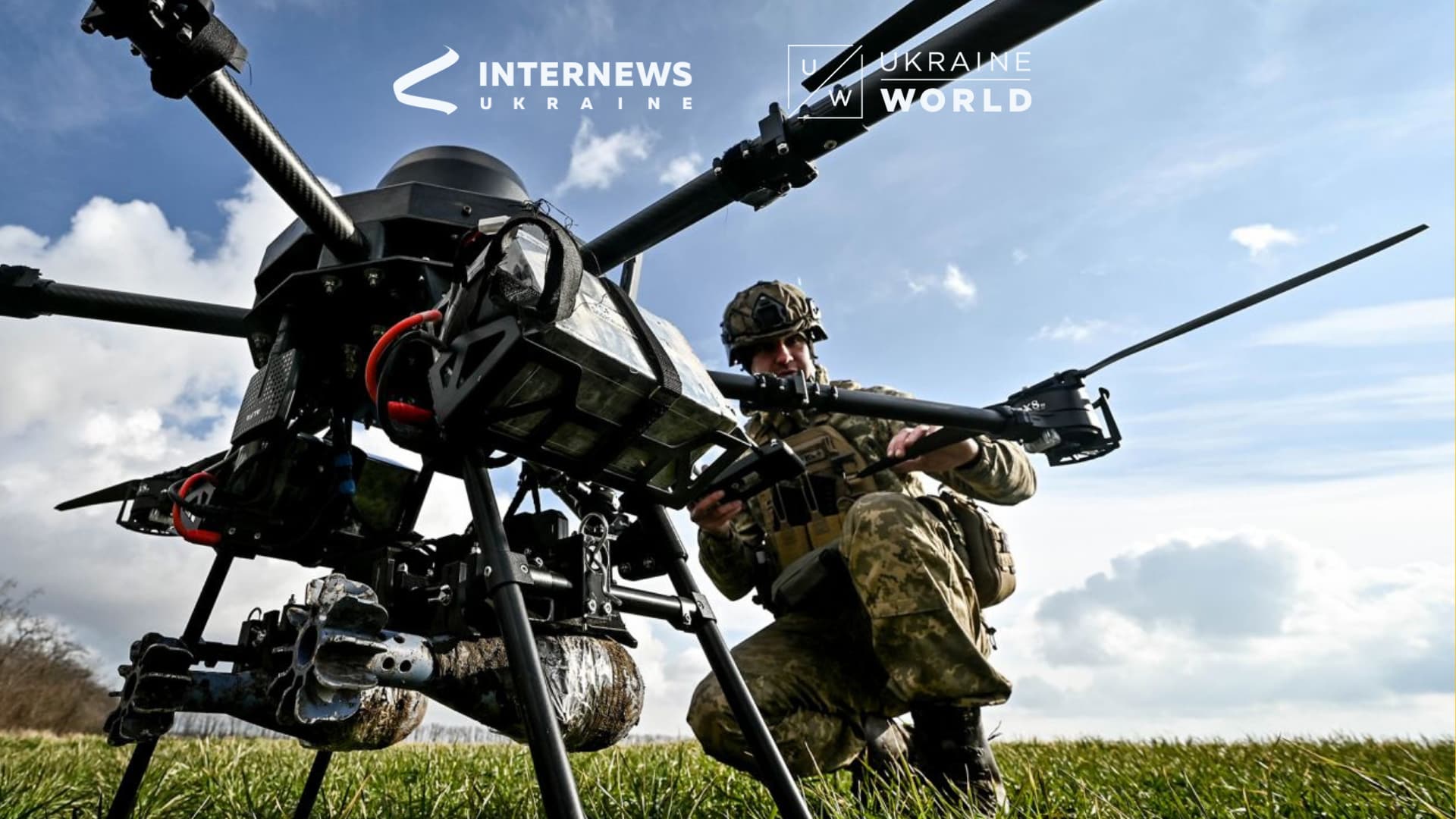
The ongoing Russian aggression has made clear that the Alliance’s survival - and by extension, the survival of the rules-based international order - is intertwined with Ukraine’s fate.
From deterring Russian expansion to accelerating operational innovation, strengthening Europe’s industrial base, and defending the norms that underpin the Alliance itself, Ukraine’s integration is essential.
Without it, NATO risks not only strategic vulnerability but also the erosion of the principles that justify its existence. We gathered several strategic pillars of Ukraine’s integration into NATO.
1. Deterrence
If NATO is to deter - and, if necessary, defeat - large-scale revisionist aggression emanating from Russia, the Alliance needs partners that hold territory and impose costs on an adversary before it reaches further.
As Hanna Shelest, director of the Security Studies Programme at the Foreign Policy Council, Ukrainian Prism, and editor in Chief of the journal UA Ukraine Analytica, tells in a podcast with UkraineWorld: “NATO de facto is the idea of deterrence and readiness for defence inside the alliance. It’s about defence, not about any joint actions abroad. And after 1949, Article 5 was used only once after September, 11.”
A durable Ukrainian defense blunts Russian capacity to project power westward and reduces the plausibility of quick aggressive campaigns against NATO allies.
NATO strategists and analysts explicitly argue that defeating Russian aggression in Ukraine is integral to an effective strategy of countering Russia and protecting Alliance security.
Furthermore, Ukraine’s southern coast is vital to Black Sea security.
Russian control over this region would grant Moscow complete strategic dominance, allowing it to project power into the Mediterranean and directly threaten the maritime security and global trade interests of NATO allies like Türkiye, Romania, and Bulgaria.
To deny Russia this critical advantage and stabilize this vital commercial artery, Ukraine's eventual integration into NATO maritime protocols is essential.
As Serhii Solodkyi, Director of the New Europe Center, told in an interview with UkraineWorld: “Ukraine is making the Alliance more resilient in modern warfare. In fact, this is precisely why the NATO-Ukraine Joint Analysis, Training, and Education Centre (JATEC) was established in Poland. Its mission is to study the lessons of Russia’s war in Ukraine. Joint cooperation will help develop concrete solutions that can support Ukraine’s struggle while also being valuable for NATO member countries.”
2. Operational learning: Ukraine’s experience for 21st-century war
The Russia-Ukraine war has been an intense, real-time test of combined-arms operations, precision fires, air-defense integration, unmanned systems (drones), EW/cyber interplay, logistics in contested environments, and mass mobilization.
NATO’s forces and doctrines benefit from the hard lessons learned - about dispersed logistics, integrated air defenses, information ops, and AI/ISR employment - that are being generated on Ukrainian battlefields and then circulated in allied training. Think tanks and defence institutions emphasize that those lessons are essential to modernizing NATO’s deterrent and operational concepts for the next decade.
In other words: Ukraine is not merely a theatre to be defended; it is a live research and development environment for alliance adaptation. As Serhii Solodkyi highlights: “Unfortunately, some Alliance countries still operate within an “escalation management” paradigm, which only serves to provoke the continuation of Russian aggression.”
This, in turn, poses the question of whether NATO’s strategic culture is fully prepared to confront the operational demands of large-scale war.
Ukraine’s experience exposes a profound asymmetry not only in resources but also in mindset — between societies accustomed to peace and those forced into existential defense.
As Oleksiy Moskalenko, an analyst at the Initiatives Centre of Come Back Alive, one of Ukraine’s most prominent charitable foundations, supporting the military and veterans since 2014 tells in a podcast with UkraineWorld: “You can get much respect in Western Europe, where there’s the value of life. But again it's a social protocol that is yet to be tested in some countries. Soldier is a profession. But here it's your duty. You don't want to go there. You wish to go back to your job that you loved. You want to do your duty and come back. And this is where Western armies are yet to be challenged.”
3. Industrial base, manpower, and resilience
Ukraine contributes to the broader allied capacity through a defense industrial ecosystem that - even during wartime - provides low-cost but highly effective production, maintenance, and repairs. Ukrainian forces are already rapidly adopting NATO operational standards and have demonstrated world-leading innovation in critical areas of modern warfare, including:
Integrating Ukraine into NATO’s industrial and logistics planning strengthens Europe’s overall ability to sustain high-intensity conflict without over-reliance on any single national supplier.
Analysts argue that post-war integration of Ukraine’s industrial base into European defense and manufacturing networks would be a cost-effective way to enhance collective security.
As Serhii Solodkyi continues: “If earlier Ukraine appealed to its partners with a request to create an air shield over the country, today the discussion is about establishing joint foundations for air defense - where Ukraine and its partners will cooperate and assist one another. In other words, it is about creating an integrated security space. The same logic applies to other domains - at sea and on land.“
To cut long story short, NATO is not only a military alliance; it is also a political community premised on defending certain norms: sovereignty, territorial integrity, and democratic choice.
Supporting Ukraine preserves NATO’s credibility: if the Alliance appears unwilling to help a European democracy resist conquest, adversaries may read that as a weakening of political will.
As analysts have argued, Ukraine's alignment is "a defining test for the alliance's credibility". Additionally, Russia's primary war goal is to deny Ukraine the right to choose its own security path, specifically its aspiration for NATO membership.
Allowing Moscow to veto the sovereign choice of a European nation would violate the Alliance’s fundamental Open Door Policy, effectively restoring a Russian "sphere of influence" and rendering the core commitment of collective defense hollow.
NATO must integrate Ukraine to validate its own foundational principles and prevent the normalization of conquest.
